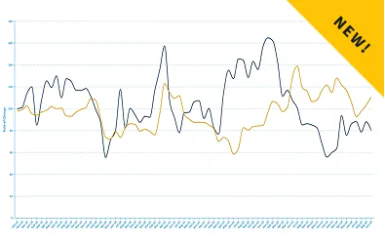Inflation Reduction Act: Changes To The Tax Code

On Friday, the House of Representatives passed the Inflation Reduction Act along party lines. The bill previously passed the Senate through budget reconciliation and a tie-breaking vote from Vice President Kamala Harris. President Joe Biden is expected to sign the bill into law this week.
The sweeping package to combat climate change, lower health care costs, raise taxes, reduce the deficit, and containing significant new funding for National Parks and public lands contains several provisions of specific interest to RV manufacturers and suppliers.
Today, we are taking a look at the tax changes in the bill.
TAX CHANGES
To offset the spending provisions, the Inflation Reduction Act includes a host of new taxes.
15% Corporate Minimum Tax
The bill creates a 15% minimum tax based on corporations’ income over $1 billion reported to shareholders known as book income, as opposed to income reported to the IRS. Democrats claim the book minimum tax is a tax loophole closer. Republicans respond that it is a tax on U.S. manufacturers. Based on a Joint Committee on Taxation analysis, 49.7 percent of the tax would be borne by the manufacturing industry at a time when manufacturers are already struggling with inflation, supply-chain disruptions, and an impending recession. The provision would exclude Subchapter S corporations (corporations with a limited number of shareholders that elect to be taxed under the individual income tax).
IRS Tax Enforcement Funding
Includes $80 billion in new funding over the next decade. Democrats claim this “investment” will yield more than $200 billion in revenue. The $80 billion is more than six times the current annual IRS budget of $12.6 billion. The bill earmarks $45.6 billion for “enforcement,” including “litigation,” “criminal investigations,” “investigative technology,” “digital asset monitoring,” and a new fleet of tax-collector cars. The result will be far more audits, civil lawsuits, and criminal referrals.
Stock Buybacks
Efforts to tighten the carried interest loophole, which allows investment managers to treat much of their compensation as capital gains and pay a 20% long-term capital gains tax rate instead of income tax rates of up to 37%, were nixed during negotiations on the final language. In place of the carried interest provisions, the bill adopts a 1% excise tax on companies' stock buybacks, raising another $74 billion.
Be on the lookout over the next several weeks as the RV Industry Association provides in-depth analysis on key components of the legislation, including energy and climate provisions, healthcare and Medicare provisions, and outdoor recreation-related provisions.
Please Sign in to View
Log in to view member-only content.
If you believe you are receiving this message in error contact us at memberservices@rvia.org.

